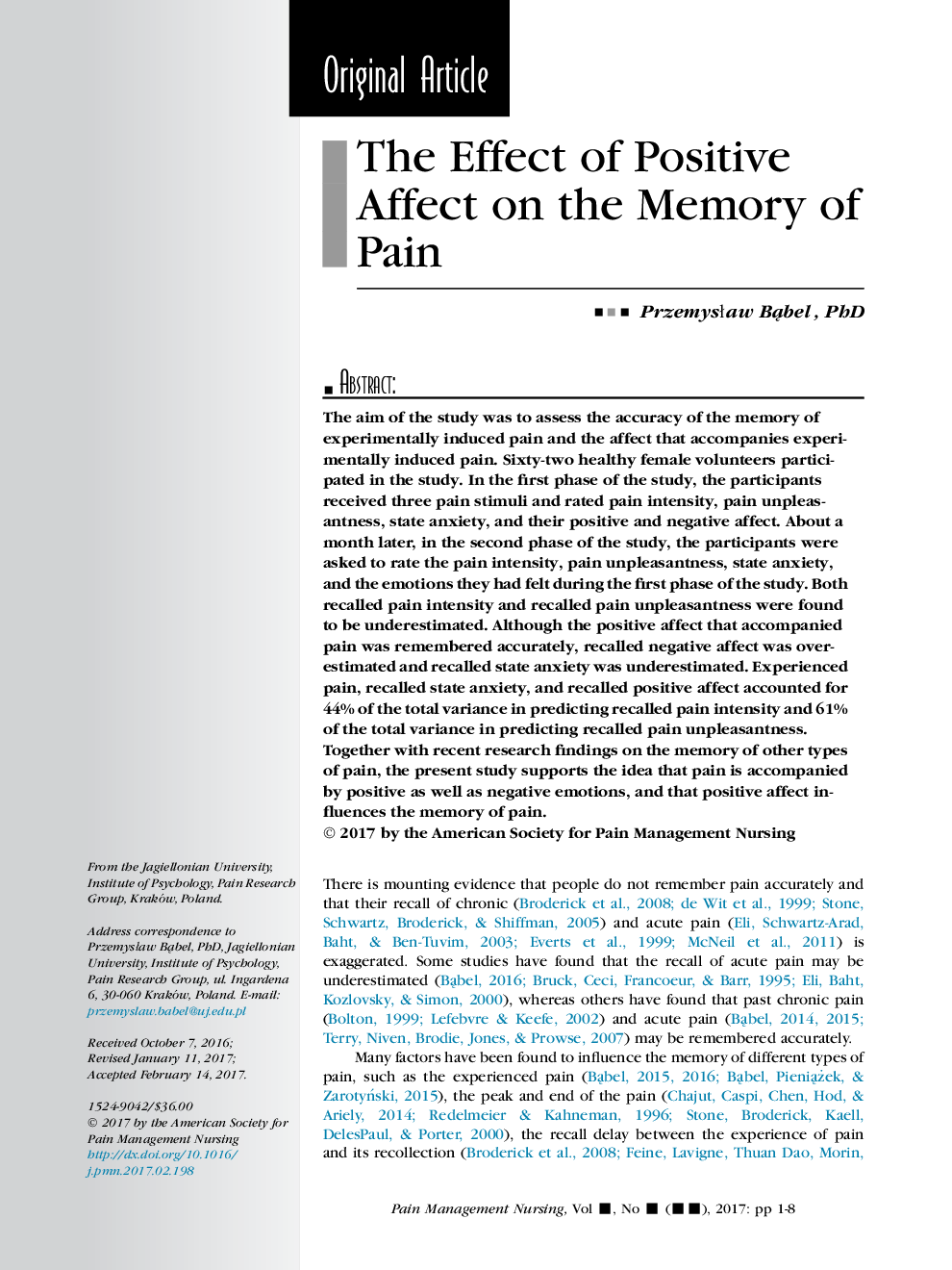ترجمه فارسی عنوان مقاله
تأثیر مثبت بر حافظه درد
عنوان انگلیسی
The Effect of Positive Affect on the Memory of Pain
| کد مقاله | سال انتشار | تعداد صفحات مقاله انگلیسی |
|---|---|---|
| 122054 | 2017 | 8 صفحه PDF |
منبع

Publisher : Elsevier - Science Direct (الزویر - ساینس دایرکت)
Journal : Pain Management Nursing, Volume 18, Issue 3, June 2017, Pages 129-136
ترجمه چکیده
هدف از این مطالعه ارزیابی دقت حافظه از درد ناشی از آزمایش و تأثیر آن است که با درد ناشی از آزمایش همراه است. شصت و دو داوطلب زن سالم در این مطالعه شرکت کردند. در مرحله اول مطالعه، شرکت کنندگان سه عامل تحریک کننده درد و شدت درد، درد ناخوشایند، اضطراب حالت و اثرات مثبت و منفی آن را دریافت کردند. حدود یک ماه بعد، در مرحله دوم مطالعه، بیماران از شدت درد، ناراحتی درد، اضطراب حالت و احساسات در مرحله اول مطالعه احساس راحتی می کردند. هر دو به شدت به درد یادآوری می کردند و ناخوشایند درد را به یاد می آوردند که دست کم گرفته می شد. اگرچه تأثیر مثبت آن درد همراه با دقت به یاد میآید، تأثیر منفی یادآوری بیش از حد برآورد شد و اضطراب حالت یادشده به دست آمد. درد شدید، اضطراب حالت یادآوری و تأثیر مثبت یادآور، 44٪ از واریانس کل را در پیش بینی شدت درد یاد شده و 61٪ از واریانس کل در پیش بینی درد ناخوشایند یادآور شد. با توجه به یافته های اخیر در مورد حافظه انواع دیگر درد، مطالعه حاضر از این ایده حمایت می کند که درد با احساسات مثبت و منفی همراه است و این تاثیر مثبت بر حافظه درد اثر می گذارد.

